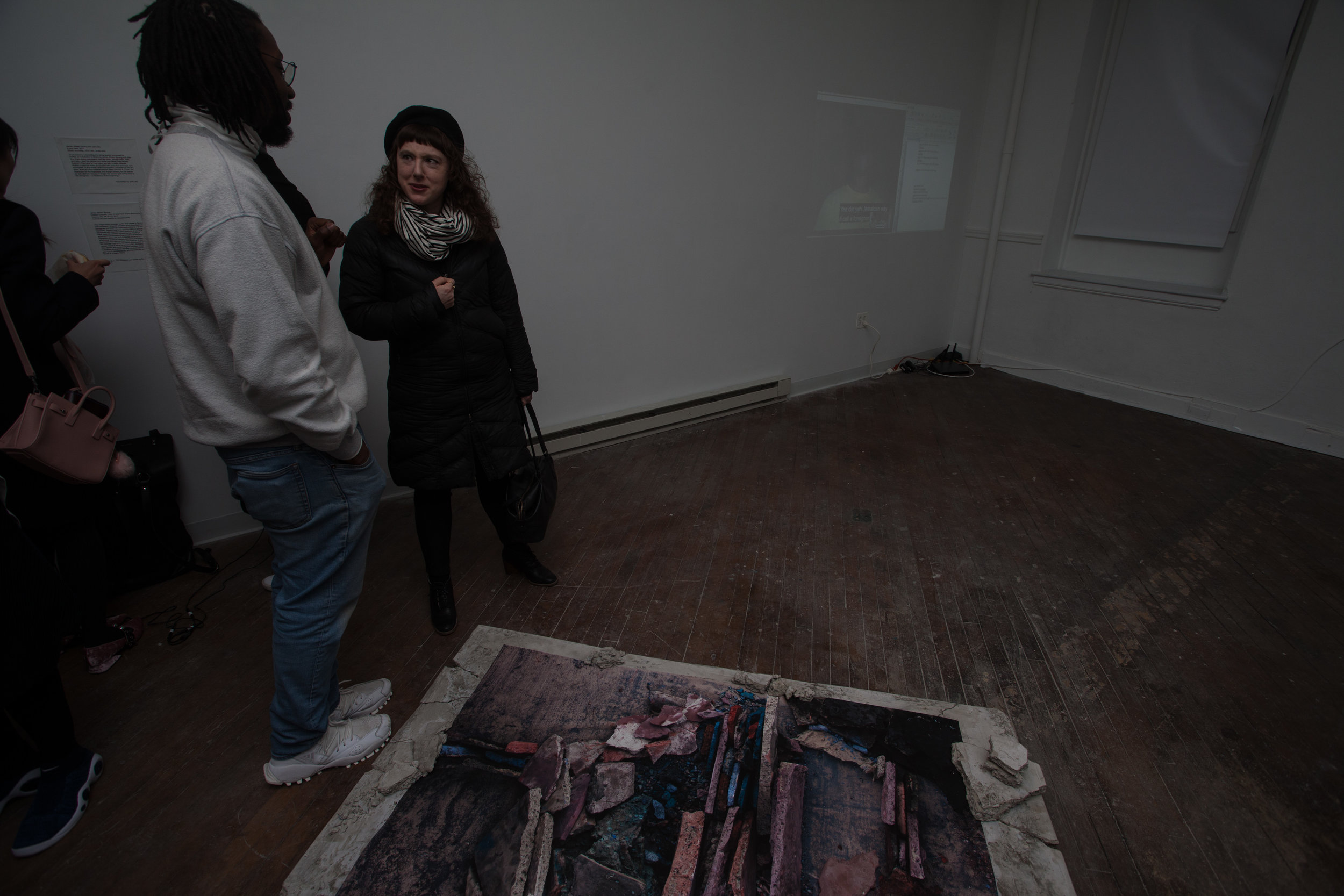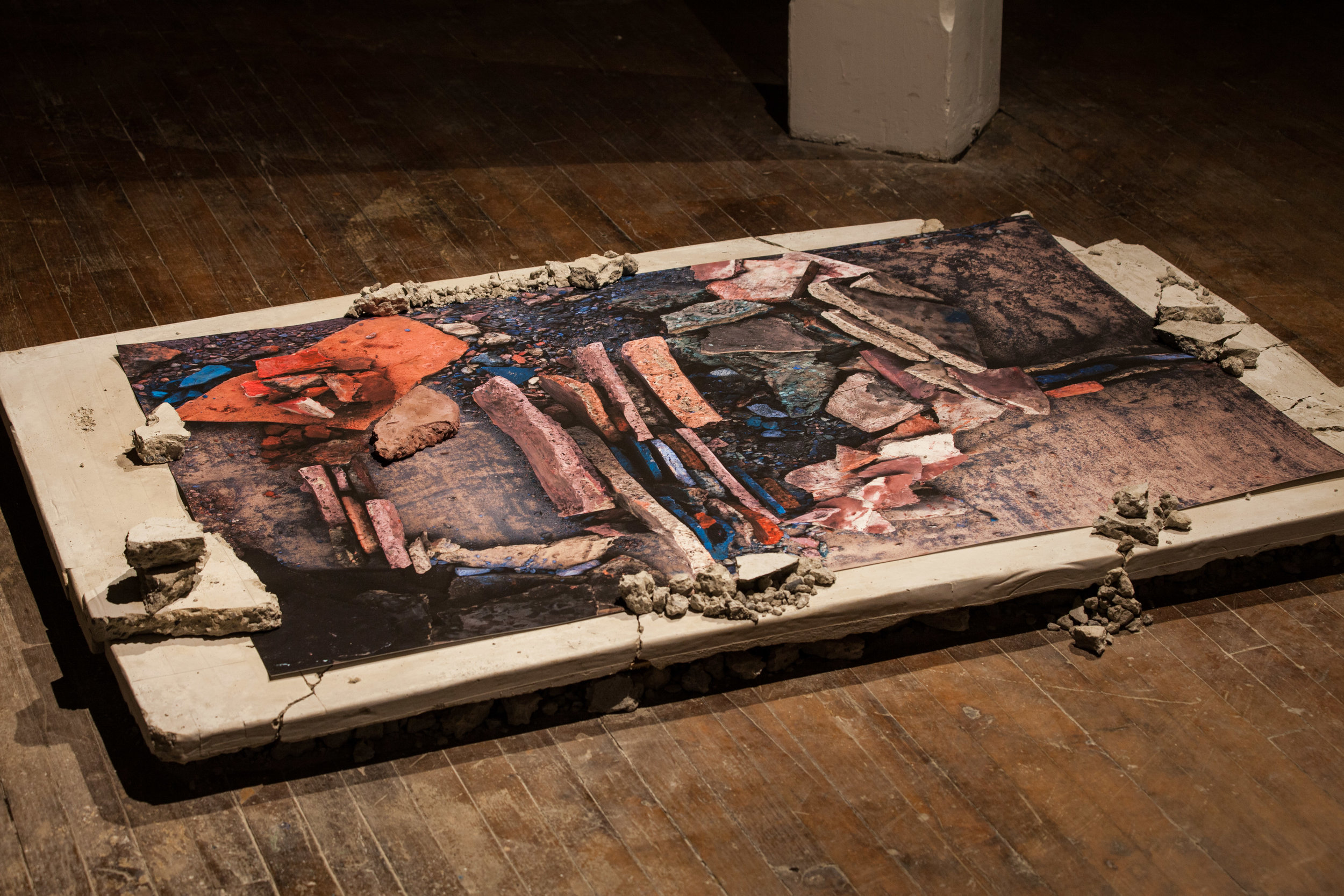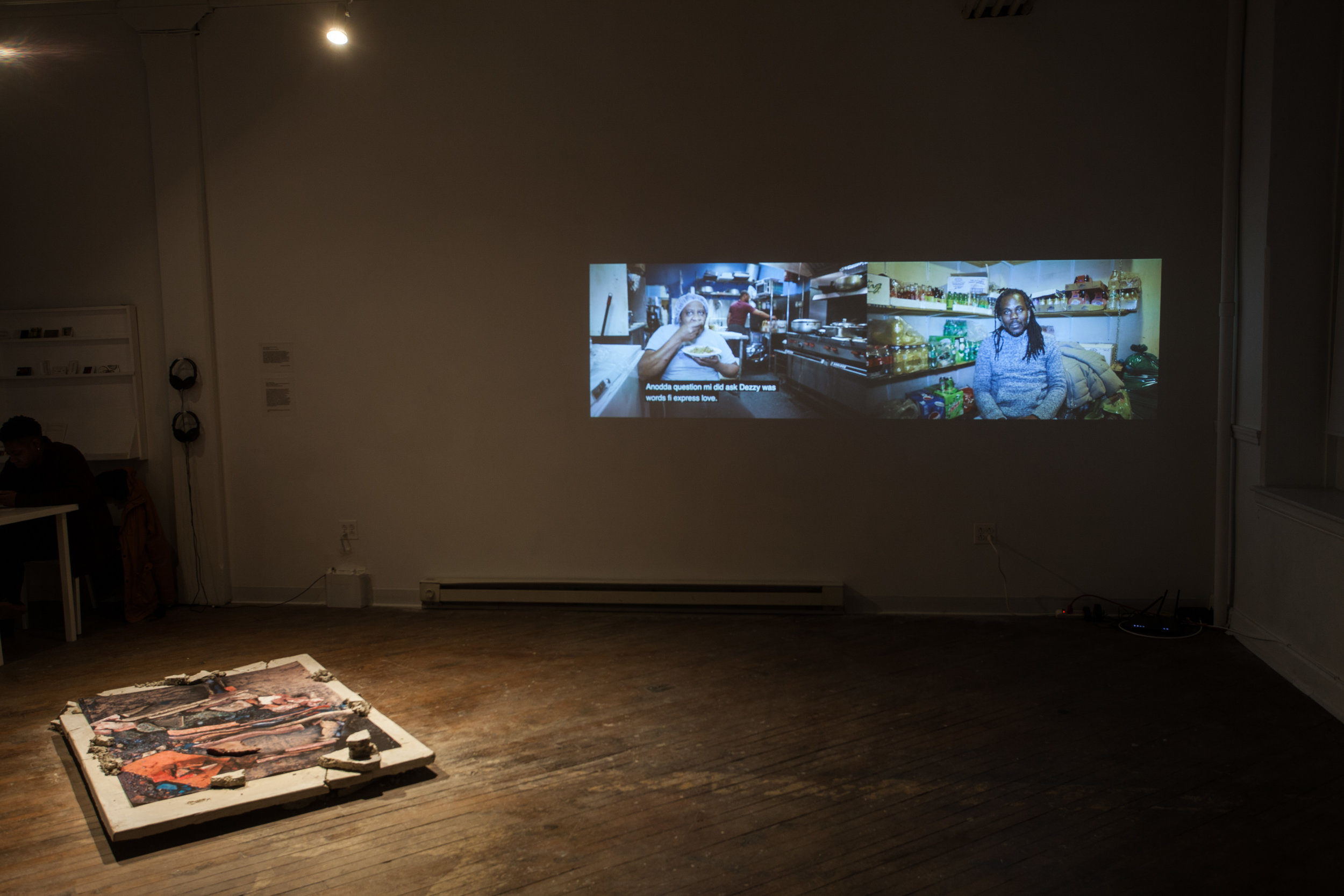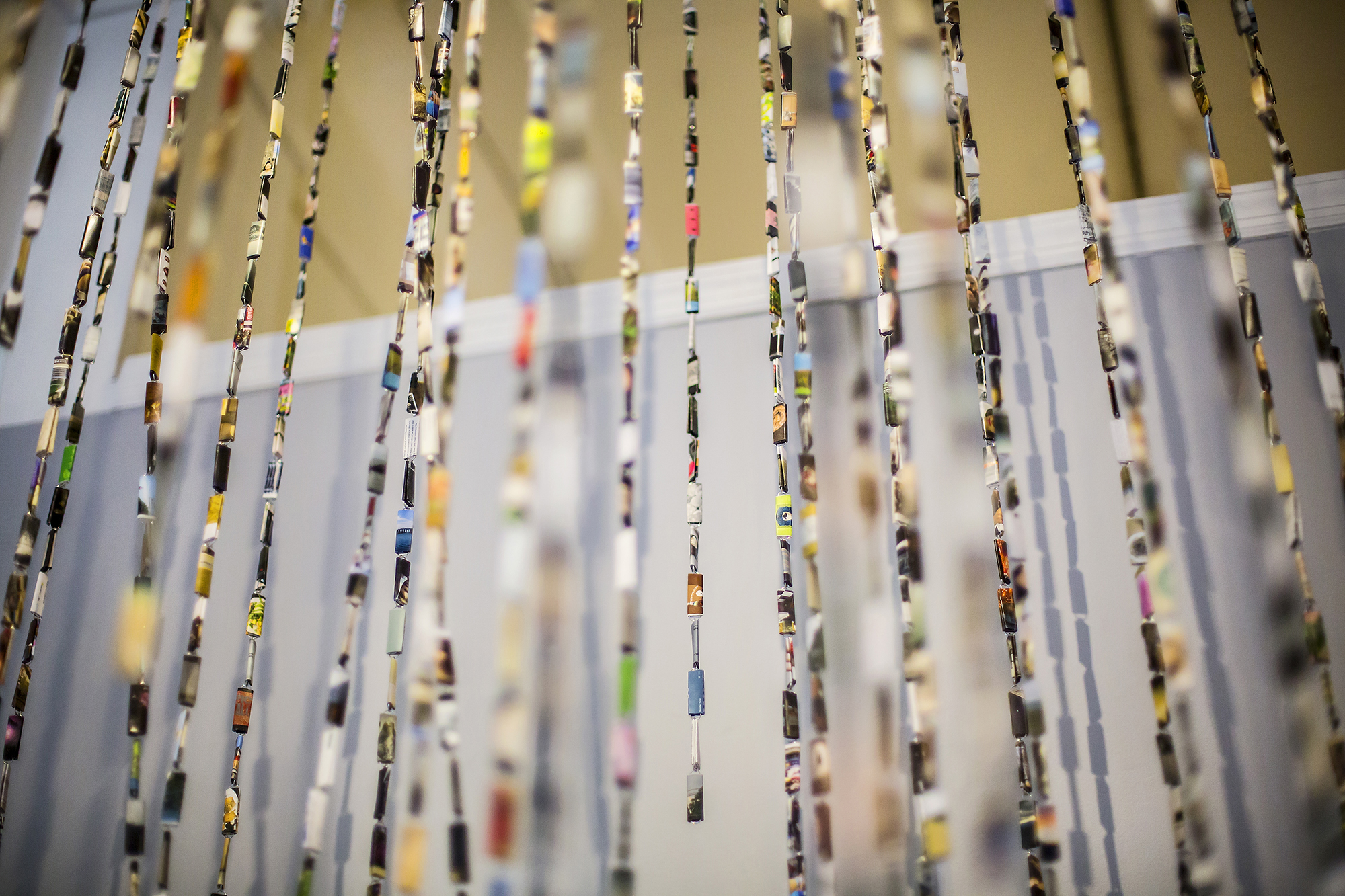Join the Incubation Series for a screening at the Lightbox Film Center. Revisions examines alternative methods of engaging with archival documents, family histories, and national narratives. Ranging from performative reenactments to collective oral remembering, the works in Revisions reconsider what it means to create, present, and interpret archival materials.
Program:
Monika Uchiyama, Bright Beyond Bearing, 4:08 min.
E. Aaron Ross, Accumulated Body, 2010, 13:57 min.
Rami George, Untitled (Saturday, October 16, 1993), 2015, 5:00 min.
Rami George, Untitled (Samaritan Foundation), 2014, 5:46 min.
Junyuan Feng, In the Park, 2017, 14:50 min.
Fred Schmidt-Arenales, Committee of Six, 2017, 9:30 min.
Revisions is organized by Isabelle Lynch and Tamir Williams.
Free Screening from 7-8 (with reception and Q&A to follow).
Playing the Rules (March 22, 2018 @ Vox Populi)
Playing the Rules
An Incubation Series Performance
Thursday, March 22nd, 2018, 8-10PM
Vox Populi (319 N 11th St, Philadelphia, PA 19107)
1. Free: in which playing is not obligatory; if it were, it would at once lose its attractive and joyous quality as diversion;
2. Separate: circumscribed within limits of space and time, defined and fixed in advance;
3. Uncertain: the course of which cannot be determined, nor the result attained beforehand, and some latitude for innovations being left to the player’s initiative;
4. Unproductive: creating neither goods, nor wealth, nor new elements of any kind: and, except for the exchange of property among the players, ending in a situation identical to that prevailing at the beginning of the game;
5. Governed by rules: under conventions that suspend ordinary laws, and for the moment establish new legislation, which alone counts;
6. Make-believe: accompanied by a special awareness of a second reality or of a free unreality, as against real life.
- Roger Caillois, Man, Play, and Games (1958)
“Play,” as sociologist Roger Caillois explains, is a category of human activity between the real and fantastical. Although extraordinary, the temporal, social, and unstable field maintains boundaries that delimit its nature – free, separate, uncertain, unproductive, governed by rules, and make-believe.
The artists in Playing the Rules—Danièle Dennis, Adrien Hall, and James Allister Sprang—establish spoken and unspoken rules along Cailloisian lines that the audience follows according to conventions of theater and normative social interaction. But like all rules, these too are meant to be broken. Complicating the very nature of expectations for performance, identity, and social space, their ludic works query what it means to “perform” on a fundamental level. Etymologically derived from the Old French parfourmer, “to perform” intimates a process of carrying through to completion, much like the aims of play. But unlike the rules of other games, the underlying tensions functioning in these works remain unresolved even after their completion: performer and audience “play” the rules as much as they are directed and defined by them.
Playing the Rules is the first Incubation Series new media and performance event. It is curated by Jessica Hough, University of Pennsylvania, and Laurel McLaughlin, Bryn Mawr College.
Double Vision (March 2018 @ FJORD)
It likely goes without saying that we now live in a time of unprecedented technological complexity, rapid communication, and massive scale. Internet searches are our go-to source for nearly every type of information, billions of people carry smartphones capable of instantly and broadly sharing photographs and videos, and massive populations, governments, and financial systems dwarf us as individuals. We are often so deeply immersed in these systems that they result in a double vision—a relationship to reality built in part upon our own immediate experiences, but also upon highly mediated connections to parts of the world that we have never actually seen with our own eyes. In the same way that double vision as a medical condition can make it impossible to resolve a clear image, this contemporary double vision often yields blurred combinations. Despite our new access to images and information, we do not always feel more connected to the world around us, and we often neglect to tease apart the disparate sources of our mental pictures.
The four artists featured in Double Vision address a broad array of topics including surveillance, self-image, state power, cybernetic connectivity, and personal memory in a collective attempt to expose and scrutinize this split in contemporary knowledge. Ranging from sculpture to video, prints, and drawings, their work does not reject new technologies and challenges, but rather insistently confronts the pressing and ongoing need for conscientious responses to them.
Double Vision is curated by Olivia Dudnik and Jeff Katzin as the tenth installment of the Series. The show runs from March 8–31 at FJORD, (1400 N. American St., Suite 105, Philadelphia). The opening will be held Thursday, March 8th from 6–9pm as part of the Crane Arts Building's second Thursday event. The closing reception will be Friday, March 30th from 7–10pm with a panel discussion at 7:30pm.
Flooding (January - February 2018 @ AUTOMAT)
Monika Uchiyama, limits of feeling, 2017, two channel video and projection, red filter, sound
Join us for Flooding, Incubation Series IX, opening on Friday, January 26th exploring the malleable, porous, and transformative nature of memory and "rememory." As Toni Morrison describes in her poignant essay "The Site of Memory,” rememory, like the water of the Mississippi remembering its river beds, is the work of things “forever tr[ying] to get back to where [they were],” and it is often born in “a rush of imagination”—a “flooding.” The four artists, Danièle Dennis, James Allister Sprang, Monika Uchiyama, and Eric Yue, consider such “flooding,” or rememory, in relation to the personal, collective, familial, and cultural.
Flooding is co-curated by Laurel McLaughlin and Tamir Williams. It is the ninth exhibition in the Incubation Series and runs from January 26th to February 24th, 2018 at AUTOMAT.
The gallery hours for AUTOMAT are Saturday - Sunday 2-6pm and by appointment.
To read the online catalogue /zine for the exhibition, please click the button below.
Loose Ends (November 2017 @ Seraphin)
When you run out of thread in the middle of a seam, you can finish with a backstitch, start again with a new thread, or carefully attach a new strand to the one you have. Loose threads, whether frayed or broken, offer the possibility of being unraveled and woven anew. This exhibition brings together the work of four artists who work with various materials and sites that are often considered to be useless in our current economy predicated on utility and consumption. Whether it is clothing we no longer wear, the digital debris that is stored on our hard drives, abandoned experimental housing structures, or the material residue of our culture of excess, the works in the exhibition consider the process of making something new with discarded materials, reminding us of the various ways in which loose ends can be retied.
Lauren Altman’s triptych of photograms produced from the seams of her mother’s sweater posit a collaboration between material, identity, and touch—a kind of hereditary indexicality manifested through medium, and one where the softness of fiber delineates the abstracted contours of memory. Altman’s interest in textiles alternately informs Endless Threads, an essay film that meditates on the fabric and clothing industries in Tiruppur and Kanchipuram in India, and Woolrich and Philadelphia in Pennsylvania.
Space and locale are critical, too, in the work of Heryk Tomassini, whose site-specific installation Renacimiento Antillano Antrincherado is part of a larger project by the artist that seeks to preserve and repurpose a series of stackable concrete units initially designed for a utopian housing project inspired by Moshe Safdie’s Habitat 67. In the context of Puerto Rico’s financial crisis, now especially critical in the wake of the devastating effects of hurricanes Irma and Maria, Tomassini simultaneously interrogates architectural history, utopic failure and potential, and alternative visions for living with one’s environment.
For works that blur the boundary between object and performance, Haitian artist Erlin Geffrard sources his materials from the kitsch cast-offs of the art world: canvases left over from colleagues, frames found on the sidewalk, and objects collected from his environs. In Flight, a pink and red plane appears playful, with its tiny propeller and antenna-like puff of exhaust fume trailing behind. But, in evoking instability and liminality, the painting investigates more urgent issues of immigration and national identity. Geffrard has also produced a site-specific interactive installation that incorporates an upright piano owned by Seraphin Gallery. Here, he probes the cultural status of music and art, as it has been determined and inflected by class and race.
The three works on view by Jiayi Liu weave together dispersed memories and discreet “data points” of identity, using materials culled from her life and her environment. Carefully folded digital prints of photographs from her iPhone comprise Image Recycled, a cloud-like curtain that takes its form from a specific cultural practice in China of making curtains from discarded paper. Liu’s other works consider the intersection of temporality, growth, and decay through materiality. iPhone prints are immersed in coffee grounds (Untitled), whose dark granularity against the pristine gallery wall toys with figure and ground, as well as the politics of the macro and micro.
Loose Ends is co-curated by Jessica Hough and Isabelle Lynch. It is the eighth exhibition in the Incubation Series and runs from November 3rd to November 17th, 2017 at Seraphin Gallery, 1108 Pine Street, Philadelphia, PA. The opening reception will be held on Friday, November 3rd from 7PM to 10PM, with the closing on November 17th from 6PM to 8PM and artist performances to be announced. The gallery is open Wednesday to Sunday from 10AM to 5PM.












































